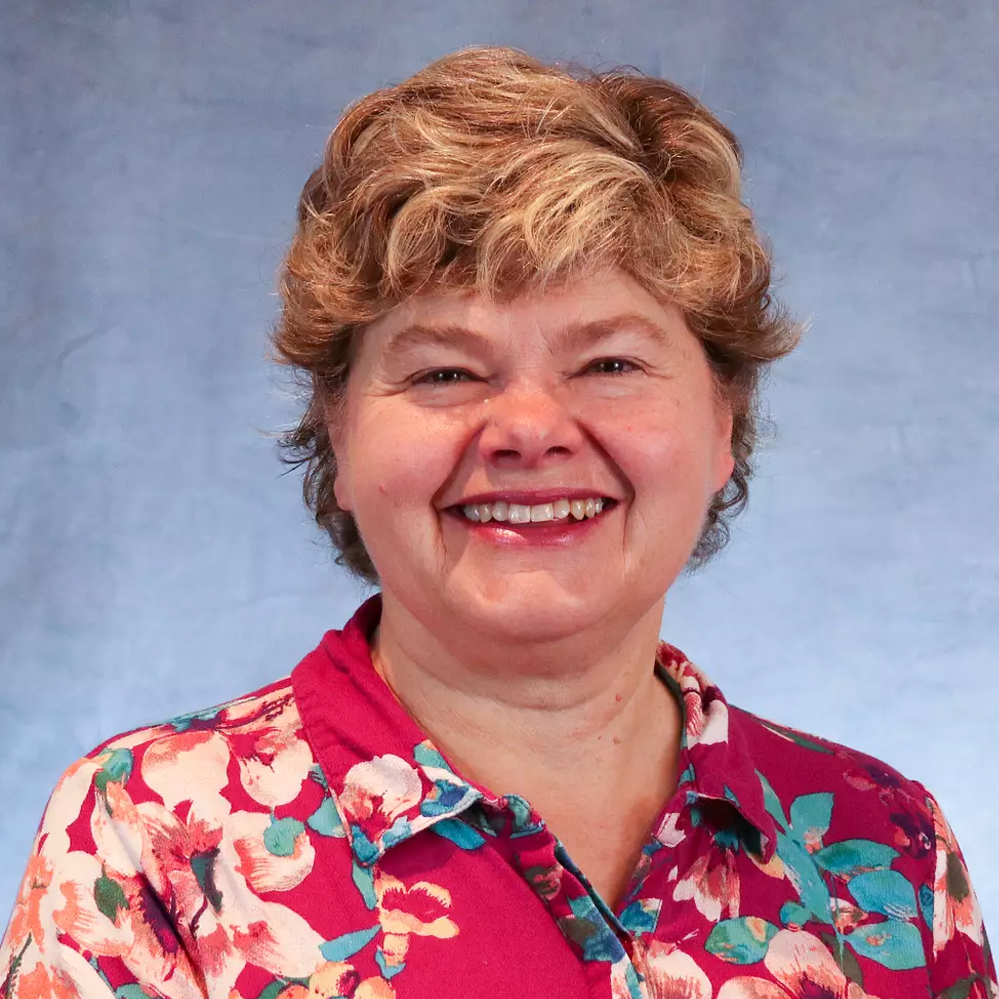
Pam Braman
Pam Braman, D.Min., is the superintendent of the Genesis Conference and a member of the Free Methodist Church USA Board of Administration. She previously served as a pastor, church planter, and assistant superintendent in the North Central Conference and on the National Planning Committee for the Wesleyan Holiness Women Clergy. She earned her Doctor of Ministry degree at Portland Seminary and wrote her thesis on “Oral Culture and Digital Natives: What the American Church Can Learn from the Mission Field.” She is married to Marshal, who is an amazing support, cook, and outdoorsman.
By Pam Braman
I serve as the superintendent in a region that has seen better days. The Genesis Conference is in the “rust belt” (western and central New York state, and north-central Pennsylvania) and it’s common to see in small towns as well as large cities, abandoned buildings, businesses, and barns. It’s common for the conference to take years to sell a property, with the end result being a loss on the books.
In driving around this region, I see reminders of the heyday of the past. I regularly drive over the Erie Canal, which shouts that once upon a time we were the place that opened up the American West to trade. I drive past buildings that years ago held the mighty corporate offices of Xerox and Kodak, now shadows of their former selves. On my 15-minute drive to work, I drive past multiple barns, now falling into the earth. As I visit our churches, I see factories empty, speaking to a past where technology launched and then left (I drive past IBM’s now empty “Plant Number 1”), where the steel industry’s decline spiraled the economy of Buffalo, where disappearing jobs in mining made small towns places of drugs and crime. In 2021, Rochester had the fifth highest rate of homicides per capita in the country. The racially motivated mass-shooting in Buffalo this past summer was close to where one of our churches had been … years ago.
_
“This region, once spiritually vibrant, has radically changed.”
_m
In my first few years here, I was struck by how this has-been status had seeped into the psyche of our churches. This is the region where the Second Great Awakening had been centered, and where our own denomination launched. I worship in churches that were “Free Methodist” before the official founding of the denomination, where B.T. Roberts was born, ministered, excommunicated (from the Methodist Episcopal Church), founded a school, and died. This region, once spiritually vibrant, has radically changed. In 2019, Barna named Rochester the fifth most “post-Christian city” in America … with Seattle listed seventh.
But the Lord is not done with us. He is up to something new.
Healed Bodies and Relationships
Two years ago, I got a call from David Prince, senior pastor of Cross Creek Church. His wife, Linda, had been sick with multiple sclerosis for decades. The medical community had tried every imaginable treatment, but there was now nothing the medical community could do, as her pain continued to escalate. In November 2020, exhausted by both Linda’s medical diagnosis and the first year of the pandemic, they went to visit family. There, someone with a healing prayer gift prayed for Linda … and Linda experienced full healing from the MS, including regaining sight in an eye that had been blind for years.
Cross Creek began having services of healing prayer, and the church began to see many healed in various ways. It was time to let Genesis know! We hosted a Zoom for pastors, with Bishop Linda Adams joining in. We spoke of this — now growing — call to “reignite a Spirit-fueled movement.” While we had a handful of churches that, before Linda Prince’s healing, would regularly pray for people to be healed (and would sometimes see God heal), the reality of Linda’s healing pushed more pastors to speak of healing, pray for healing, host healing services.
_
“… we’d hear stories of how the Lord had healed people emotionally, spiritually, physically.”
_m
Our Annual Conference in 2021 took place in four different locations over four different days, due to New York state’s mandate that no group gathering be over 100 people. At the end of each gathering, we hosted a service of healing prayer. In the months to come, we’d hear stories of how the Lord had healed people emotionally, spiritually, physically.
At Annual Conference 2022 (now back in one place), we started our time together with a service of prayer and worship, combined with an old-fashioned Wesleyan Love Feast. Rather than each person being given a piece of bread, we gave everyone a bag of oyster crackers to cut down on germ spread! I gave instructions that during this time of worship and prayer, people were to go and pray for one another, or offer a Scripture passage (or any prompting from the Lord) to another. I told them that this was a time to get hearts clear, and if they held anything in their heart against someone else, to go and make it right. I also invited pastors to go to other pastors when their churches were at odds (sometimes for decades), and people to come to me if they needed to get things right with either me or the conference. I didn’t know if people would actually do this … but as I looked around the room, I knew they were taking it seriously.
One pastor came up to talk to me because he’d been angry at me for a long time. We broke bread (or, in our case, shared crackers), promised to start fresh, and prayed together. Another pastor, new to our system, came up to me because her church didn’t trust “the conference.” She really didn’t understand why, but we broke break, put the issue in the Lord’s hands, and prayed. Interestingly enough, I had visited this church only a couple of weeks before. While there, we had prayed for a delegate who was rapidly declining from a newly diagnosed disease.
During lunch our first day of Annual Conference 2022, two pastors came up to me to tell me that the Lord had healed them that morning: One had been healed of double vision that had been plaguing him for weeks; the other had been healed of a frozen shoulder he’d had for years (he simply put his hand up in worship and realized that his arm extended fully). I had them share what had happened as we started our afternoon session. The next morning, a woman, who has been legally blind for years, realized that she could actually see the faces of those of us who were on the platform. When she returned home, she saw faces of people in her church for the first time (and she reports that they don’t look like what she anticipated!). The cane, which helped her get around safely, is now laid aside.
_
“I realized that we had not built into our time any prayer for healing.”
_m
At our OneDay gathering in October, another pastor gave testimony to being healed of cancer. I had mentioned to those gathered the reality of the healings we are seeing in Genesis. His request to share his story was impromptu. But after he shared, I realized that we had not built into our time any prayer for healing. And so we stopped right then, asking those who would like prayer to raise their hands, and we prayed.
The day after OneDay, I received an email from the delegate that we’d prayed for from the church that didn’t trust the conference. She was healed of the disease, giving glory to God.
It’s not that everyone we pray for experiences healing. In fact, some, who have experienced healing in one way, find that they continue to need healing in another. And others are asked to trust the Lord in the midst of their sickness or pain. But the fact that the Lord is up to something new in this “has-been” region is undeniable.
Waters of Revival
The past few years have been enormously difficult for churches and pastors. In Genesis, we are experiencing what the trends are nationwide: church attendance is down by about one-third, giving by about one-fourth. Pastors are navigating the divide in culture, new financial realities, and the disappointment of seeing those they have poured themselves into leave the church or engage far less often. It’s the most challenging time in ministry in our lifetime.
But.
Isn’t it true in Scripture that when things are the bleakest, God shows up? And here we are, in Genesis, living this truth.
While the stories of our denomination launching are filled with the power of the Holy Spirit and the Lord’s healing (including B.T. Roberts’ wife Ellen being healed), over the decades we had, in this region, ceased to expect this kind of work of God. But in Genesis that has now changed.
Seeing His hand doing things that only He can do, encourages us to boldly step out into this new territory, in this new era, to reach a new people with the good news of Jesus. To reach people who may not “believe in God” but who are still hungry for miracles. To reach a generation that is hungry for authentic experience.
Seeing the healing hand of the Lord also encourages us to have faith in other areas where we need it right now: provision in the midst of lower giving with high inflation, provision of volunteers in a time when many have disappeared. These healings remind us God is at work! and help us to have faith that the Lord is not done with us yet.
_
“We pray for the flood, for the streams in the wasteland.”
_m
Are we yet at the full-blown revival that we long for and pray for? No. But we believe that the small trickle of the waters of revival has started. We pray for the flood, for the streams in the wasteland. Pray with us.
“Forget the former things;
do not dwell on the past.
See, I am doing a new thing!
Now it springs up; do you not perceive it?
I am making a way in the wilderness
and streams in the wasteland.”
(Isaiah 43:18-19)
+

Pam Braman
Pam Braman, D.Min., is the superintendent of the Genesis Conference and a member of the Free Methodist Church USA Board of Administration. She previously served as a pastor, church planter, and assistant superintendent in the North Central Conference and on the National Planning Committee for the Wesleyan Holiness Women Clergy. She earned her Doctor of Ministry degree at Portland Seminary and wrote her thesis on “Oral Culture and Digital Natives: What the American Church Can Learn from the Mission Field.” She is married to Marshal, who is an amazing support, cook, and outdoorsman.









